ARPPIS scholars, class of 2017
In September 2017, 11 postgraduate students joined icipe through the African Regional Postgraduate Programme in Insect Science (ARPPIS), with support from German Academic Exchange Service (DAAD). The scholars will be hosted within various projects being implemented by the Centre.
Pascal Ayelo (Benin)
 Research Project: Design of new tools for tomato protection against Tuta absoluta based on semiochemicals to reduce pest oviposition and to attract parasitoids and predators.
Research Project: Design of new tools for tomato protection against Tuta absoluta based on semiochemicals to reduce pest oviposition and to attract parasitoids and predators.
Host project and funding: ECOPLUS funded by Agence Nationale de la Recherche (ANR), and HORTINET-CI funded by PreSed/CI.
Research goals: Identifying the tomato volatiles that attract Tuta absoluta and the chemical cues that lead to oviposition behaviour. The T. absoluta induced tomato volatiles that are repellents for the pest and attractants for its predator, Nesidiocoris tenuis and one specific parasitoid will also be identified.
Bio: Pascal holds a BSc in Sciences and Techniques of Plant Production and an MSc in Sustainable Pest Management and Valorization of Biopesticides from University of Abomey Calavi, Benin.
Supervisors: Dr Emilie Deletre and Dr Thibaud Martin (Cirad/icipe); Dr Samira Mohamed (icipe).
Getachew Eticha (Ethiopia)
Research project: Exploring the role of grasses and associated fungal species in oviposition site selection of malaria vector mosquitoes.
Research goals: This research will contribute knowledge on the development of vector control and monitoring tools that target malaria mosquitoes outside houses, as well tools that are not insecticide-based.
Host project and funding: Novel oviposition attractants for malaria mosquitoes, funded by the Swedish Research Council (through KTH Royal Institute of Technology, Sweden).
Bio: Getachew holds a Bachelor of Education degree in Biology from Bahir Dar University, Ethiopia, and an MSc in Entomology from Jimma University, Ethiopia. He is a member of Ethiopian Society of Tropical and Infectious Diseases and Crop Protection Society of Ethiopia.
Supervisors: Dr Ulrike Fillinger, Dr Michael Okal and Dr David Tchouassi (icipe).
Bester Tawona Mudereri (Zimbabwe)
Research project title: Analysing the possibility to monitor Striga weed infestation levels in eastern Africa using space-borne and in situ time series observations.
Research goals: Investigate the use of very high-resolution, space-borne sensors to monitor the flowering Striga signal and plot level texture related to the weed’s infestations. The explicit data sets to be generated will contribute towards upscaling the icipe Push-Pull technology to priority areas.
Host project and funding: Push-Pull for sub Saharan Africa, funded by Biovision Foundation for Ecological Development, Switzerland.
Supervisors: Dr Tobias Landmann and Prof. Zeyaur Khan (icipe).
Bio: Bester holds a BSc in Environmental Science from Bindura University, Zimbabwe; an MSc in Geo-information Science and Earth Observation from the University of Twente, Netherlands, and a postgraduate Diploma in Tertiary Education from Midlands State University, Zimbabwe. He is a member of the Society for Conservation GIS (SCGIS), Kenya.
James Kisaakye (Uganda)
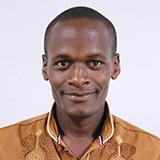 Research topic: Development of biopesticides for below ground pest and nematode constraints of banana in East Africa.
Research topic: Development of biopesticides for below ground pest and nematode constraints of banana in East Africa.
Research goals: To develop a microbial consortium that will effectively target multiple below ground pest constraints of banana.
Host project and funding: Microbial Uptakes for Sustainable management of major banana pests and diseases – MUSA, funded by the European Union Horizon 2020 programme.
Supervisors: Dr Sevgan Subramanian, Dr Solveig Haukeland and Dr Sunday Ekesi (icipe), and Dr Danny Coyne, International Institute of Tropical Agriculture (IITA).
Bio: James obtained a BSc in Biochemistry from Makerere University, Uganda, and na MSc in Nematology from Ghent University, Belgium.
Iman Brema Hassaballa (Sudan)
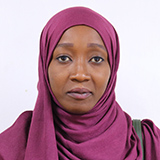 Research project: Assessment of sand fly plant feeding behaviour in Baringo Country, endemic area of leishmaniasis and arboviruses in Kenya.
Research project: Assessment of sand fly plant feeding behaviour in Baringo Country, endemic area of leishmaniasis and arboviruses in Kenya.
Research goals: Her research interests include studying Medical Entomology specifically species structure of sand fly fauna.
Host project and funding: DFG (Grant under discussion)
Supervisors: Dr David Tchouassi and Prof Baldwyn Torto (icipe).
Bio: Iman holds a BSc in Public and Environmental Health from Kordofan University, and an MSc in Medical Entomology and Vector Control from Gezira University, both in Sudan. She is a member of the teaching staff of Kordofan University of Sudan, Faculty of Medicine and Health Sciences.
Yosef Hamba (Ethiopia)
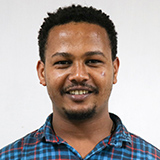 Research project: Development of microbe based strategies for improved bee health.
Research project: Development of microbe based strategies for improved bee health.
Host project and funding: Bee health research funded by icipe core donors: Swiss Agency for Development and Cooperation (SDC), Switzerland; Swedish International Development Cooperation Agency (Sida); UK Aid, Government of the United Kingdom and Ministry of Higher Education, Science and Technology, Kenya.
Supervisors: Dr Juan Paredes and Dr Jeremy Herren (icipe), and Prof Bernard Slippers (University of Pretoria, South Africa).
Research goals: The main focus of this study will be the development of probiotics in the hive and management of bee disease. The research will also explore the distribution of bee diseases and improved risk mapping.
Bio: Yosef holds a BSc in Biology and an MSc in Molecular Biology and Biotechnology, from Dire Dawa University, Ethiopia. He is a member of the Biological Society of Ethiopia Association (2015), International Oromo Lawyers Association (IOLA – 2015) and JICA - PAUSTI Alumni Association (2014).
Tatenda Chiuya (Zimbabwe)
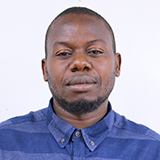 Research project: One Health approach to vector biology and arbovirus epidemiology in smallholder livestock system.
Research project: One Health approach to vector biology and arbovirus epidemiology in smallholder livestock system.
Research goals: The study will determine the most important vectors of zoonotic pathogens and their livestock reservoirs in western Kenya, where a large diversity of potential arbovirus vectors have recently been identified.
Host project and funding: Zoonoses in Livestock in Kenya (ZooLinK) project, funded under the UK Research Council and the Department for International Development (DFID).
Bio: Tatenda holds a Bachelor of Veterinary Science degree from University of Zimbabwe and an MSc in Tropical Animal Health from the Institute of Tropical Medicine, Belgium.
Supervisors: Dr Dan Masiga and Dr Jandouwe Villinger (icipe); and Dr Eric Fevre (International Livestock Research Institute, ILRI).
Dennis Beesigamukama (Uganda)
Research project: Development of insect-based compost for sustainable soil health management using by-products from insect mass rearing for food and feed.
Research goals: Convert waste from insect rearing into mature, stable and nutrient rich compost that can be used to improve soil fertility and consequently crop production. The study will also contribute to strategies for improving organic resources management like eliminating harmful organisms and smell, and reducing bulkiness so as to encourage their wider acceptability in crop production.
Host project and funding: Insect feed for poultry and fish production in sub Saharan Africa (INSFEED) project (phase 2), funded through the Cultivate Africa’s Future (CultiAF) initiative, by the International Development Research Centre (IDRC), Canada, and Australian Centre for International Agricultural Research (ACIAR).
Bio: Dennis holds a BSc in Agricultural Land Use and Management and an MSc in Soil Science all from Makerere University, Uganda. He is a member of the Makerere University Land Managers Association and served as advisor of the association from 2010 to 2012.
Supervisors: Dr Komi Fiaboe, Dr Sunday Ekesi, Dr Fathiya Khamis, Dr Martha Musyoka, Dr Chrysantus Tanga and Prof. Baldwyn Torto (icipe).
Ruth Kihika (Kenya)
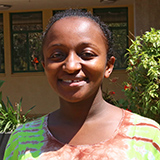 Research project: Identification of effectors and allelochemicals regulating root knot nematode parasitism
Research project: Identification of effectors and allelochemicals regulating root knot nematode parasitism
Research goals: Focus will be on chemical signals involved in the parasitism of root knot nematodes (RKNs) with the aim of developing a semiochemical based tool for their management.
Host project and funding: Identification of semiochemicals regulating biology of potential invasive pests to the United States project, funded by the United States Department of Agriculture/Agricultural Research Service (USDA/ARS).
Bio: Ruth holds a BSc in Chemistry from Moi University, Kenya and an MSc in Chemistry from Kenyatta University. She is a member of the Horticultural Association of Kenya (HAK) and the International Society of Chemical Ecology (ISCE).
Supervisors: Dr David Tchouassi and Prof. Baldwyn Torto.
Pascal O. Aigbedion-Atalor (Nigeria)
 Research project: Pre- and post- release evaluation of Dolichogenidea gelechiidivoris (Marsh) for suppression of Tuta absoluta (Meyrick)
Research project: Pre- and post- release evaluation of Dolichogenidea gelechiidivoris (Marsh) for suppression of Tuta absoluta (Meyrick)
Host project and funding: Tuta integrated pest management project, funded by African Development Bank, through Technologies for African Agricultural Transformation (TAAT).
Research goals: pre- and post-release evaluation of Dolichogenidea gelechiidivoris (Marsh) for suppression of Tuta absoluta (Meyrick) in Kenya.
Bio: Pascal holds a Bsc in Zoology from Ambrose Alli University, Nigeria and an MPhil in Entomology from the University of Ghana, Legon. He is a member of the Entomological Society of Southern Africa.
Supervisors: Dr Samira Mohamed and Dr Sunday Ekesi (icipe).
Gladys Mosomtai (Kenya)
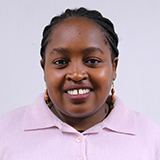 Research project: Epidemiology of coffee pathosystem in the smallholder context on the Aberdare range, Kenya: modelling the impact of agro-ecological factors for coffee pest and disease dynamic prediction.
Research project: Epidemiology of coffee pathosystem in the smallholder context on the Aberdare range, Kenya: modelling the impact of agro-ecological factors for coffee pest and disease dynamic prediction.
Research goals: The research will focus on understanding the dynamics of coffee pests and diseases and their distribution across different agro-ecological zones at farm level and upscaling it to regional level to inform best practices to alleviate farmers from further loses.
Host project and funding: Increasing Murang’a Union farmers’ income by improving their coffee’s quality and productivity and by establishing quality recognition signs project, funded by Agence Française de Développement (AFD).
Bio: Gladys holds a BSc in Environmental Planning and Management from Kenyatta University, Kenya, and an MSc in Geospatial Information Systems and Remote Sensing from Dedan Kimathi University of Technology, both in Kenya. She is a member of International Geospatial Society and Geographic Information Knowledge Network.
Supervisors: Dr Regis Babin (Cirad/icipe), and Dr Tobias Landmann (icipe).

